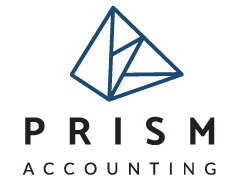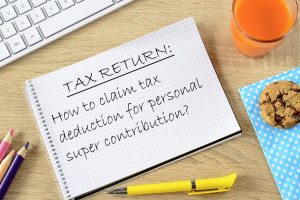Tax planning should always be done in advance. Business owners need to make certain critical decisions before year end. We have listed certain steps and tax planning strategies you should consider implementing before 30 June 2020.
Trading stock
For tax purposes, trading stock on hand at the end of the year can be valued using:
- Cost
- Replacement value
- Market selling value
You can adopt different valuation basis for different items of stock, and the choice may change from year to year, which provides opportunity for tax planning. Valuing closing trading stock the lowest of these values will defer profit recognition, while using the highest values will bring it forward.
Businesses holding trading stock must do physical stock count to determine value of trading stock on 30 June each year. The exception is small businesses electing to use Simplified Trading Stock concession. Small businesses with aggregated turnover of less than 10 million can chose not to do a stock take and not to account for any changes in stock value if based on reasonable estimate the change in stock value during the year is less than $5,000.
Employee superannuation expenses
Employee Superannuation expenses, including super guarantee, salary sacrificed amounts and voluntary employer contributions, are deductible in the financial year, in which they are paid. To be considered paid, the amounts must be received by the super fund. To claim tax deduction for superannuation in the current year, ensure the payments are processed and received by the super fund prior to 30 June 2020. Keep in mind that processing payment may take a few days.
Small Business employers with 19 or fewer employees can pay superannuation via the ATO’s “Small Business Superannuation Clearing House”. Apart from being a free service, this option allows your accountant to access payment information through the ATO online services making reconciliation process much more efficient.
Ensure that Super Guarantee amounts are paid correctly, being 9.5% of gross ordinary times earnings. Super guarantee shortfalls attract super guarantee charge (SGC), which is not tax deductible.
Super Guarantee Amnesty
If you missed or underpaid compulsory super guarantee payments, for a limited time you have an opportunity to disclose, lodge and pay the unpaid amounts. The payments made within amnesty period will be tax deductible. To participate in the amnesty, you need to apply by 7 September 2020. This is a one-off opportunity to review and correct your super guarantee amounts that should not be missed.
PAYG Withholdings from payments
Ensure correct amounts of PAYG Withholdings are withheld from payments and reported to the ATO. From 1 July 2019, failure to comply with PAYG Withholding obligations can result in tax deduction for the payment being denied, unless you make a voluntary disclosure and correct the mistake.
Payments from which PAYG Withholdings must be made include:
- employee salary or wages
- directors fees
- payments under labour hire agreement
- payments to contractors who fail to quote ABN
If you think you made a mistake, you should correct it and make a voluntary disclosure as soon as possible.
Prepayments
Generally, prepaid expenses over $1000 are deductible over the ‘eligible service period’, which cannot exceed 10 years. However, prepayment of eligible expenses, such as rent, subscription, lease charges, insurance, and interest, made by small businesses may be immediately deductible in the same financial year if paid before 30th June.
Prepaid expenses are immediately deductible if:
– the eligible service period for the expenditure is 12 months or less, and
– the period ends no later than 30.06.2021.
You automatically qualify for this concession if you are a “Small Business Entity” with an aggregated turnover of less than $10 million per annum, unless you chose not to take advantage of this concession.
Instant Assets Write-Off
In response to economic impact of COVID-19, the Government has extended Instant Asset Write Off threshold to $150,000 for eligible businesses. If you are planning to invest in business equipment, it could be a great tax planning opportunity to bring forward tax deductions.
For 2020 Financial Year, the following thresholds apply depending on dates the assets were first used or installed ready for use:
- From 1 July 2019 – 11 March 2020 – less than $30,000 (for businesses with an aggregated turnover of less than 50 million).
- From 12 March 2020 – 30 June 2020 – less than $150,000 (the threshold extends to businesses with an aggregated turnover of less than $500 million.
Legislation is currently pending to extend the $150,000 threshold till 31 December 2020.
From 1 January 2021, Instant Asset Write-Off Threshold for small businesses is expected to revert back to $1,000.00, unless further legislative changes are made to extend it.
While extending Immediate Asset Write Off to $150,000 may seem generous, this may not be beneficial for every business owner. For example, if claiming immediate deduction on equipment results in decreasing your personal income to a lower tax threshold, you are not getting the full benefit of your tax deduction. In this case, it is better to spread it over the effective life of the asset rather than deduct in a single year.
You should also keep in mind the following points before deciding to make equipment purchases:
- Before claiming a tax deduction, you must incur an expense. The amount of tax benefit you will get from this deduction generally will not exceed your individual marginal tax rate (plus Medicare). You should only buy a piece of equipment if it is needed for the business.
- Claiming immediate deduction for the cost of the asset will only affect timing of the deduction, not the total amount claimed.
- To be eligible for immediate deduction in the same financial year, the equipment must not only be purchased by a certain date but also be first used or installed ready for use by 30 June.
- Small businesses electing to use simplified capital allowance regime to claim instant write off, must claim immediate deduction for ALL eligible assets. You cannot choose to exclude certain assets from this regime. Assets above the threshold must be pooled to a small business pool and they must remain in the pool even if the business exits simplified depreciation.
- Car Depreciation Cost Limit still applies to car purchases. For 2019 – 2020 financial year, the car limit is $57,581.
- Disposal of an asset at a later time will result in balancing adjustment. You will have to include the proceeds on disposal of an asset, which has previously been written off, in your assessable income.
Put money aside to pay taxes
If you chose to vary your PAYG Instalments as a result of your business being impacted by Covid-19, or if your business is growing and your PAYG Instalments paid during the year are insufficient to cover the total amount of tax, you are likely to have to pay a large catch-up tax bill when you lodge your tax return. It is important to put aside money to pay tax and plan for any cash outflows needed to pay your liabilities.
Put aside a percentage of your income reflecting your marginal tax rate to a separate bank account or to an offset account against your non-tax-deductible loan, such as your home mortgage, to reduce interest. Avoid using this money for any other purposes than paying your tax bill and PAYG Instalments.
Discretionary Trusts
Trustees of discretionary trust must pass a valid resolution to distribute trust income to beneficiaries by the end of the financial year (30 June) to ensure the beneficiaries are presently entitled to their portion of income for that year. Failing to do so will result in trustee being assessable on net income of the trust at the highest marginal tax rate.
Private Companies with Division 7A loans
Review company accounts for any loans or other benefits paid to shareholders and their associates and ensure that minimum yearly repayments are made on Division 7A loans by 30 June. It is not enough to just make accounting entries reflecting payments, the amounts must be physically paid.
Division 7A Loan minimum payments are permitted to be offset against the amount of dividends and other obligations payable to the shareholder. To offset the minimum loan repayment against dividends in that year, the dividend must be declared by 30 June.
Impacted by Covid-19?
If your business received government incentive payments, ensure these payments are recorded correctly in the accounting records. Payments such as JobKeeper Payments are taxable and must be included as income of the entity. Cash Flow Boost is a tax-free payment.
While receiving a Cash Flow Boost payment will not impact on tax position of individual (sole-trader or partners in a partnership) taxpayers, if you are conducting business through a company, paying out tax-free amounts will result in unfranked dividend ultimately taxable to shareholders. Trustees of discretionary trusts need to be careful to check the terms of the trust deed to determine whether these tax-free payments should be classified as income of the trust estate.
Check out Tax Tips for Business Owners for further tax planning strategies, tips and suggestions how to minimise your tax and make your better prepared for tax time.
These are some of the generic tax strategies you may consider implementing before 30 June. For tax planning and ministration advise tailored to your circumstances, speak to our consultants.
Need Help?
We are able to assist you with tax strategies and planning specifically tailored to your circumstances. Send us an enquiry or call our office to see how we can help.
Disclaimer: All the information provided on this website is of general nature and does not constitute tax, legal or financial advice. It does not take into account your personal circumstances and is not intended to replace consultation with a qualified professional.







